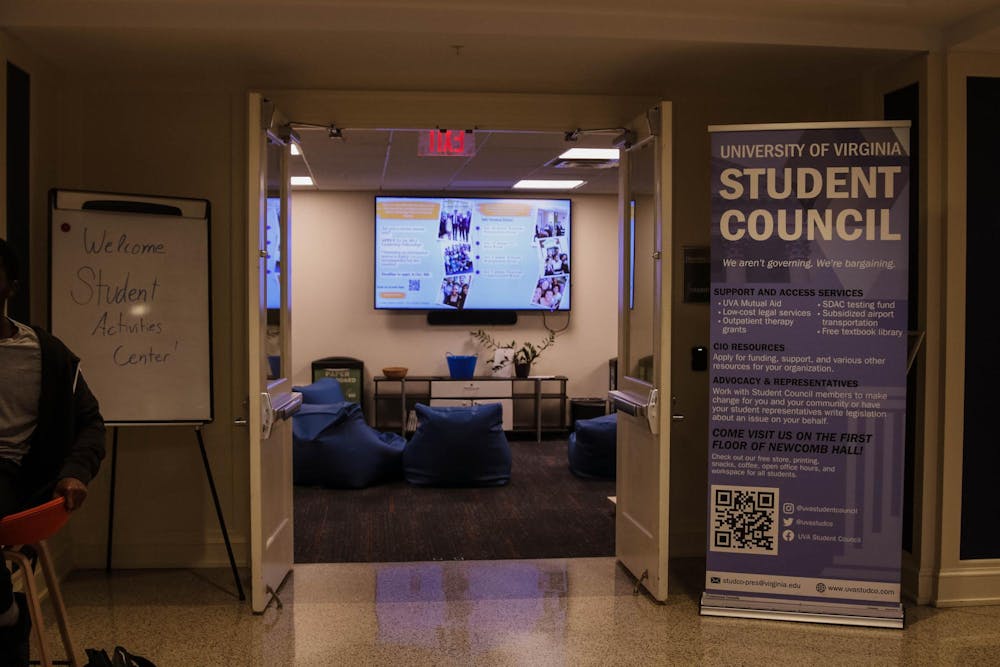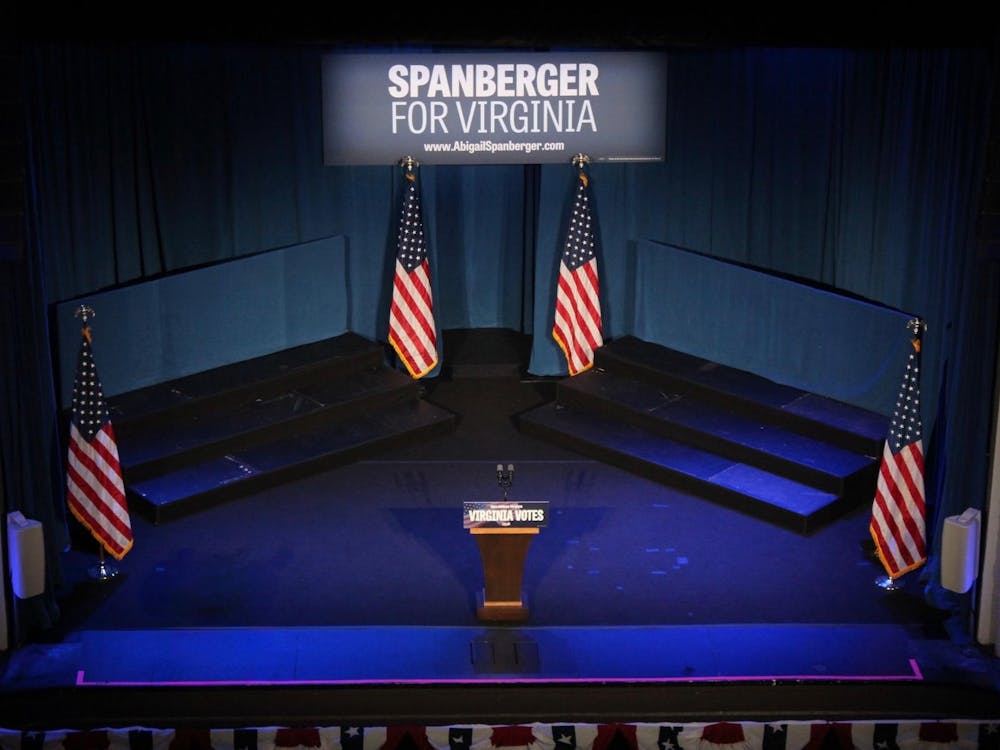Student leaders say the University is at a tipping point for protecting student self-governance following University President Jim Ryan’s decision to resign June 27 after facing pressure from the Trump administration. Many urged renewed attention to a core tradition they fear could be threatened during this period of transition.
The University has a historical tradition of student self-governance, which allows students to take part in decision-making processes — major self-governance groups include the Honor Committee, University Judiciary Committee, Student Council and Class Councils.
The Cavalier Daily spoke with leaders from Student Council and fourth-year Class Council about their reactions to Ryan’s resignation — while some praised Ryan for supporting student autonomy during his tenure, others said they hope his successor will strengthen the relationship between the administration and student leadership.
The Honor Committee and the UJC declined to make representatives available to comment.
Annie Zhao, class of 2026 vice president and fourth-year College student, said student self-governance is central to the University’s identity and helps shape student leadership beyond Grounds.
“Student self-governance really is part of the core of U.Va. It's something that many schools cannot say about themselves. It's really the charm that makes us who we are. The culture of student self-governance has been so heavily ingrained in the student body that it's no longer seen as a tradition … it's a way for all of us to grow into leaders beyond our time at U.Va.,” Zhao said.
Karam Zein, social and events co-chair for the class of 2026 Council and fourth-year College student, said student self-governance plays a critical role in ensuring students have a voice in decisions that directly impact them, like the resignation.
“The importance of student self-governance is that it empowers students to participate actively in decision making processes that affect their daily life at the University, and that's why it was a shock to a lot of student leaders that students had really no say in any of this process,” Zein said.
Many student leaders, including Zhao, said President Jim Ryan consistently supported student self-governance during his tenure, highlighting his efforts to listen to students directly and provide their organizations with what they need.
“I had a lot of opportunities to work with President Ryan and I was able to learn through his actions what student self-governance looks like,” Zhao said. “President Ryan really emphasized listening to students, and he always made sure that we were able to meet whenever we needed to.”
Supporting self-governance in some cases meant using University resources to make a financial commitment to student organizations. Imane Akhanous, chair of the representative body and fourth-year College student, also pointed to concrete examples of Ryan’s support for student leadership.
“[Ryan’s] legacy is one that's reflected in the tangible support that he provided students. A notable commitment that he [made] was the large donation to Student Council,” Akhanous said. “This investment was a pretty clear affirmation that he trusted students to lead, problem solve and take ownership of the future of the University.”
That investment was a total of $750,000 over the course of three years to the Student Council’s Support and Access Services branch. The SAS branch provides direct resources to students, including legal services, accommodations for disabilities and transportation during holidays through the Airbus program. Clay Dickerson, Student Council president and fourth-year College student, said that Ryan’s role in providing financial support enabled student initiatives to grow.
“This started from a dream four years ago, before SAS branch was created, and President Ryan heard this dream, he saw our vision and he enabled us to utilize our slice of student self-governance,” Dickerson said.
Some student leaders said Ryan’s resignation reflects broader political pressures facing higher education. Saehee Pérez, chief of cabinet and third-year College student, pointed to concerns about government overreach and its impact on university independence.
“[Ryan’s] resignation and what led up to it was an example of very explicit political overreach and threatens the independence of universities meant to further knowledge and further research,” Pérez said.
Emily Frost, director of University relations for Student Council and third-year College student, said the political climate surrounding Ryan’s departure could discourage underrepresented students from applying to or attending the University.
“I'm worried about what this moment will entail for more marginalized students at U.Va. The reason Jim Ryan was forced to resign was because of his commitment to making the University a more accessible place for all students,” Frost said.
She noted concerns that a new president may not prioritize inclusive programs for students from marginalized backgrounds.
“I'm worried about the first-generation, low-income students, students of color and just any other students that might come from an underprivileged background who now might not want to apply to the University or attend the University because they're worried that their existence will be politicized and they won't get the support that they need,” Frost said.
Student leaders said the resignation has highlighted the importance of student self-governance as a defining part of the University’s identity. Dickerson shared this sentiment, saying self-governance remains important because the student body saw the resignation as forced and out of their hands.
“The importance of student self-governance going forward is to ensure that we have the ability to build this University as we see fit, as the students that are the heart and soul of this place. If you don't have the ability to craft it and to curate the experience, then what's the point of student self-governance existing,” Dickerson said.
As the University begins the search for its next president, student leaders said they hope to see a continued commitment to student self-governance and a stronger partnership between the administration and student leadership. Many emphasized the need for open communication and a president who will prioritize student voices in major decisions.
Prioritizing a president who will focus on students outside of the realm of politics is important for Frost.
“[I prefer] someone whose commitment first and foremost is to the University of Virginia and its student body, more so than to any political party or anything along those lines,” Frost said.
Akhanous said she hopes the next president will build on the foundation of student-administration collaboration and take further steps to support student leadership.
“I sincerely hope that the next president builds on what we've been working on and so communication with student leaders, openness to student feedback, trusting students to lead, so this transition gives us an opportunity to go further,” Akhanous said.
Looking ahead, student leaders said they believe student self-governance will remain central to the University’s identity during this time of transition. Many expressed optimism that the next president will recognize its value and work closely with student leaders to strengthen the tradition.
Akhanous agreed, noting she is hopeful the next administration will view student self-governance as a strength and build on the relationship between students and the administration.
“I personally am quite hopeful that new leadership is going to view student self-governance as a strength to be embraced, and I personally would welcome them to work with students on a regular basis,” Akhanous said. “I want to see transparency, partnership [and] open dialogue … students are ready to do our part, and now it’s up to the administration to do theirs.”
Zein also emphasized the importance of student input in the selection of the next President. While the Board of Visitors will select and appoint both an interim and permanent President for the University, former Rector Robert Hardie and current Rector Rachel Sheridan noted in an email to the University community that a search committee will include students.
“At the end of the day, I know it’s the Board of Visitors that appoints these people, but still, relying on student sentiment and what the view is amongst the students really should be a primary focus,” Zein said.







